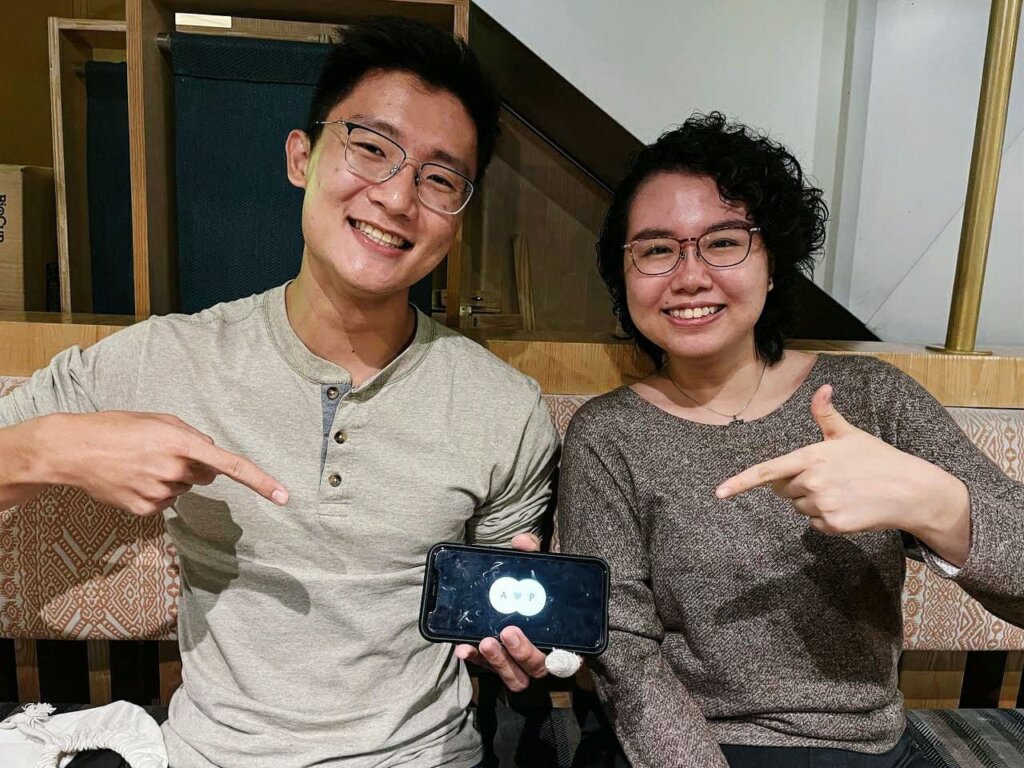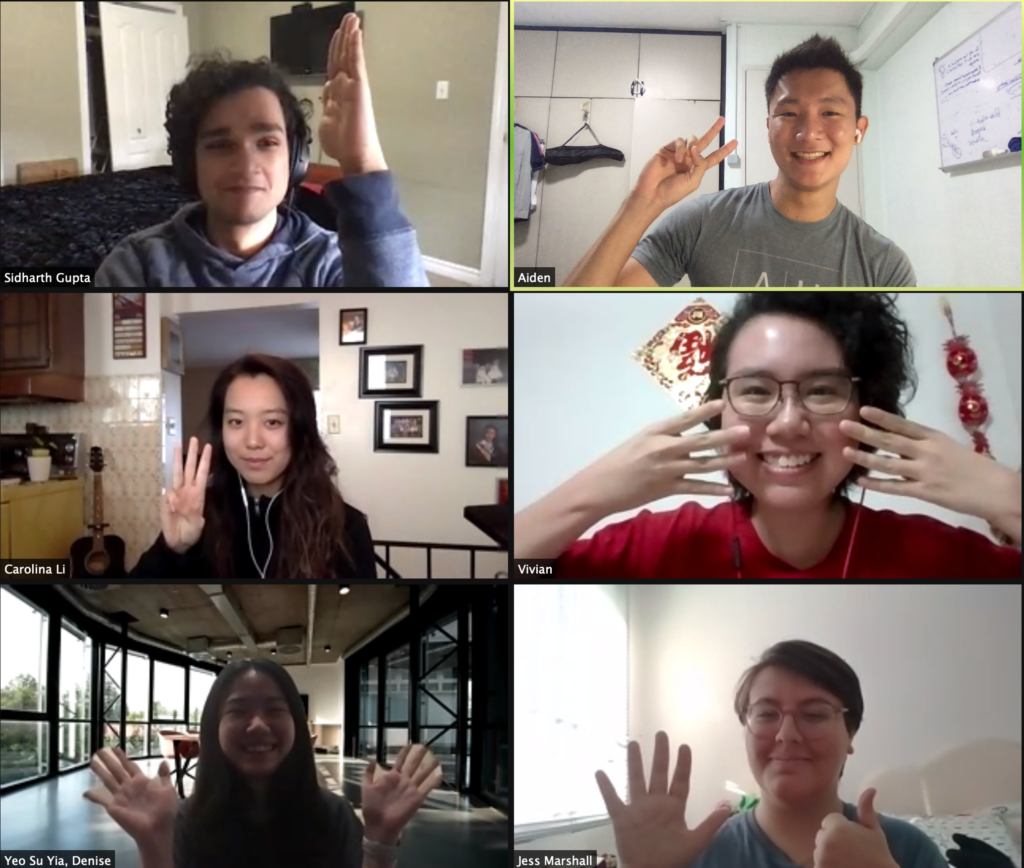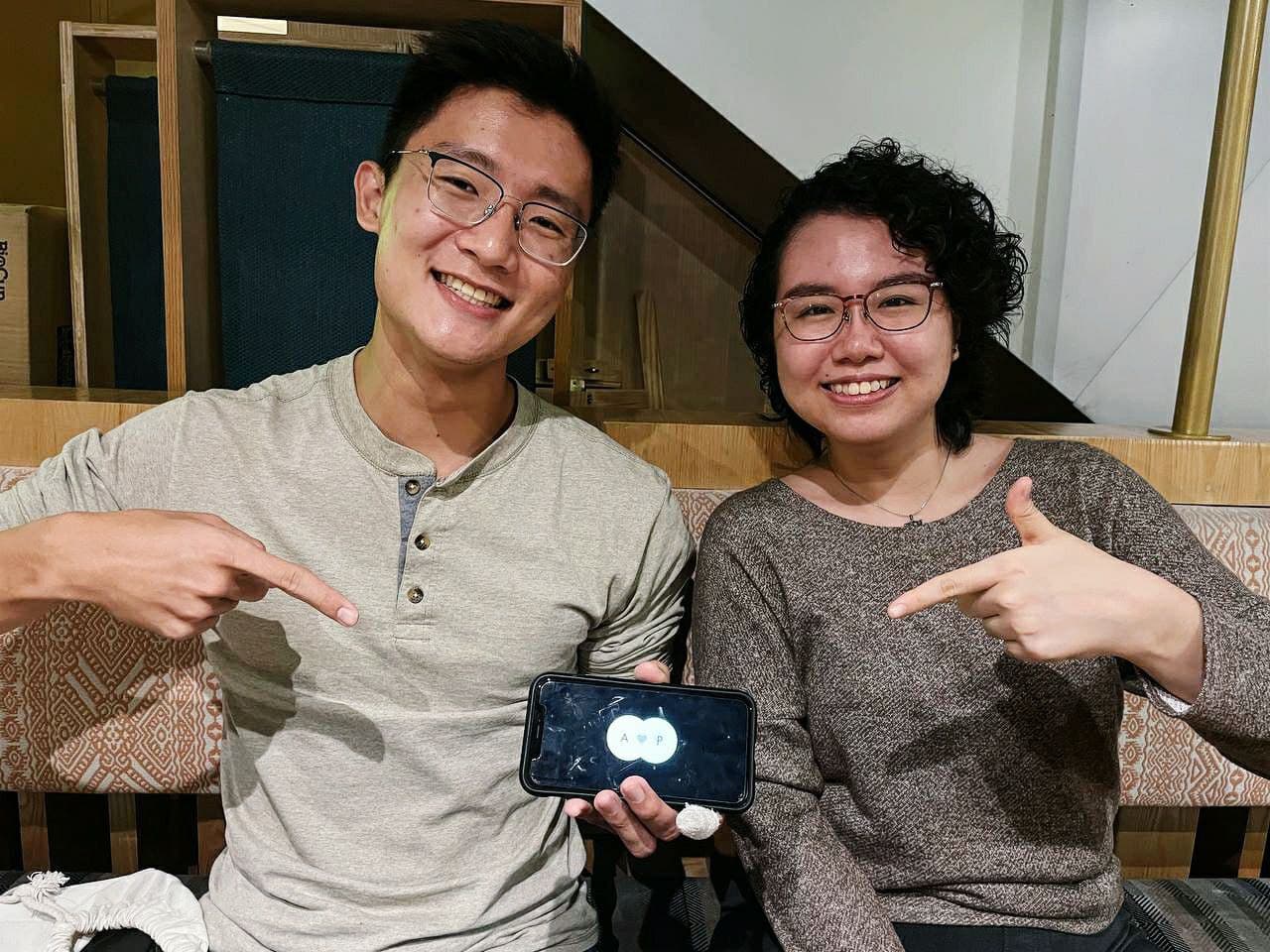- Matchmaking app Aphrodite Project will be taking a hiatus to focus on improvements for its next round of dates in August
- The team is working to add height into the in-depth questionnaire, after receiving feedback from participants in previous rounds; 59 out of 1228 respondents were now in a romantic relationship or considering one
- The Aphrodite Project’s user base has grown to 25,000 students and even expanded to two universities in Canada
By Aditi Bharade
When he founded dating app Aphrodite Project in 2019, NUS student Aiden Low could never have predicted that his humble passion project would grow in one year from a few thousand users in NUS to more than 25,000 in universities worldwide.
His first launch attracted around 3,700 NUS students, who were drawn to the app’s unique take on matchmaking — an algorithm that assigns blind dates based on a roughly 100-question personality survey asking anything from work habits to thoughts on showing affection in public. The app also does away with photos to take looks out of the equation.
Since its first run, the Aphrodite Project’s user base has expanded to students from SMU, NTU and two universities in Canada, which Aiden visited while on exchange last year.
“It was really heartening to see the outreach because Aphrodite is only made possible with the support and word of mouth of students,” said Aiden, 24, a final-year NUS Computer Science student.
Aiden, who spent the first semester juggling his final-year project while managing the Aphrodite Project, said: “It takes a lot of time since it is all algorithm-driven, so there is a lot of backhand work involved to refine the codes. So instead we are focusing on improving our questionnaire as best as we can before the next cycle.”
Despite Aphrodite Project’s rapid growth, the NUS student will be putting its blind date drives on hold to focus on improving the matchmaking platform for its next round in August.
His team curates Aphrodite’s questionnaire, which is based on the Nobel prize-winning Gale–Shapley algorithm, to pair participants with an ideal partner based on their values, lifestyle preferences and whether they are looking for a relationship. Then, the team passes each user the contact of their assigned partner to set up their own blind date.
Aiden told Soapbox 59 of 1228 respondents in 2020 indicated in a survey after the dates that they were now in a romantic relationship or considering one. Meanwhile, 11 respondents considered their matches to be close friends and six respondents said they had one-night stands with their matches, or considered each other as friends with benefits, he added.
“Given our more conservative culture and the fact that the follow-up survey was conducted six to eight weeks after matches were out, we think that these results were pretty good,” said Aiden.
“Even if the relationship hasn’t worked out, if Aphrodite has given students an opportunity to take a small step out of their comfort zone and try something new and grow, that’s great enough for us.”

Improvements on its way
But participants highlighted that the questionnaire lacked one piece of information: height. It seemed to be an important criterion for many partners and the team is working to add it to the questionnaire for Singaporean users, said Aiden.
He added the team needed to tread carefully before modifying the questionnaire. “We added the height question in our last cycle in Canada and got some borderline hateful emails from some shorter guys about how unfair it was to them. So we are thinking about how to make the question more tactful.”
The team also wanted to avoid making the questionnaire too specific, said teammate Miss Vivian Lai, a psychology graduate from NUS who handles the project’s publicity in NTU.
Miss Lai, 23, who also works as a civil servant, said: “How granular do we make the question? Should a person be allowed to choose an exact height, like 171cm, or a range, such as 165cm to 170cm?”
“Deciding that is going to be challenging. And people need to understand that if they are very picky, they might end up with no matches.”
But height preferences were as far as the team were willing to dabble into physical appearance, and they remain determined to maintain the brand’s stance in placing values above looks.
Miss Lai said: “The hard truth is that dating apps benefit people who look better. Our project gives an equal chance for different kinds of people to find someone, regardless of how they look, their background or their demographics.”
“We are constantly making changes to our questionnaire, backing it up with all kinds of psychological research and accounting for feedback from our participants.”

Working through Covid
The Covid-19 pandemic became an opportunity last year for the growing Aphrodite Project, said Miss Lai.
“People were craving connections and social interaction, and we sensed that there would be a greater demand for our project,” she said.
In February, the Aphrodite Project brought the matchmaking app to universities in Canada, where Aiden spent several months on exchange last year. They have since conducted two blind date drives there, in February and June.
“I thought it was a chance to expand the impact of our project to more people, and I found that students in Canada were genuinely very supportive,” he said.
The team also brought a special “pandemic-edition”, exclusive to users in Canada. This edition asked for the participants’ geographical location to cater to students from various time zones, as many had gone home amid the coronavirus outbreak.
Aiden noted that the team tweaked the questionnaire to account for different lifestyle preferences among users in Canada, such as views on sex. But for Singapore, questions tended to be more conservative.
“In Singapore, we asked whether the participants would want to have sex before marriage, but in Canada, we asked at what stage of the relationship would be willing to have sex.”
He added the Aphrodite Project was built to cater to unique preferences, particularly for the lesbian, gay, bisexual and transgender (LGBT) community in schools.
He said: “There are people in the LGBT community for whom it is especially hard to find people who love and accept them for who they are. So we thought why not make something that is open and inclusive for all, regardless of their backgrounds.”
After a busy year of launches in four other universities, Aiden said that giving his team a break until August will let them rest to focus on other matters while improving the project.
“We are honestly quite overloaded. This semester I was interviewing for companies, doing my final-year project along with handling the Aphrodite Project,” he said.
Unwilling to hand the Aphrodite Project off to someone else just yet, Aiden intends to continue working on the dating app past graduation. He plans to expand to even more universities in North America.
The project was also given a $9,000 boost from the NUS Innovation and Entrepreneurship Practicum Award. While still free of charge for participants, the group is accepting donations to keep the project running.
He said: “We want to always work towards a larger pool, because the more students in the matchmaking pool, the better the outcomes can be.”
Aiden said: “I think that when people graduate, they look back most fondly on the meaningful relationships they have created, and the ones they loved in university. I want to keep making that happen.”



